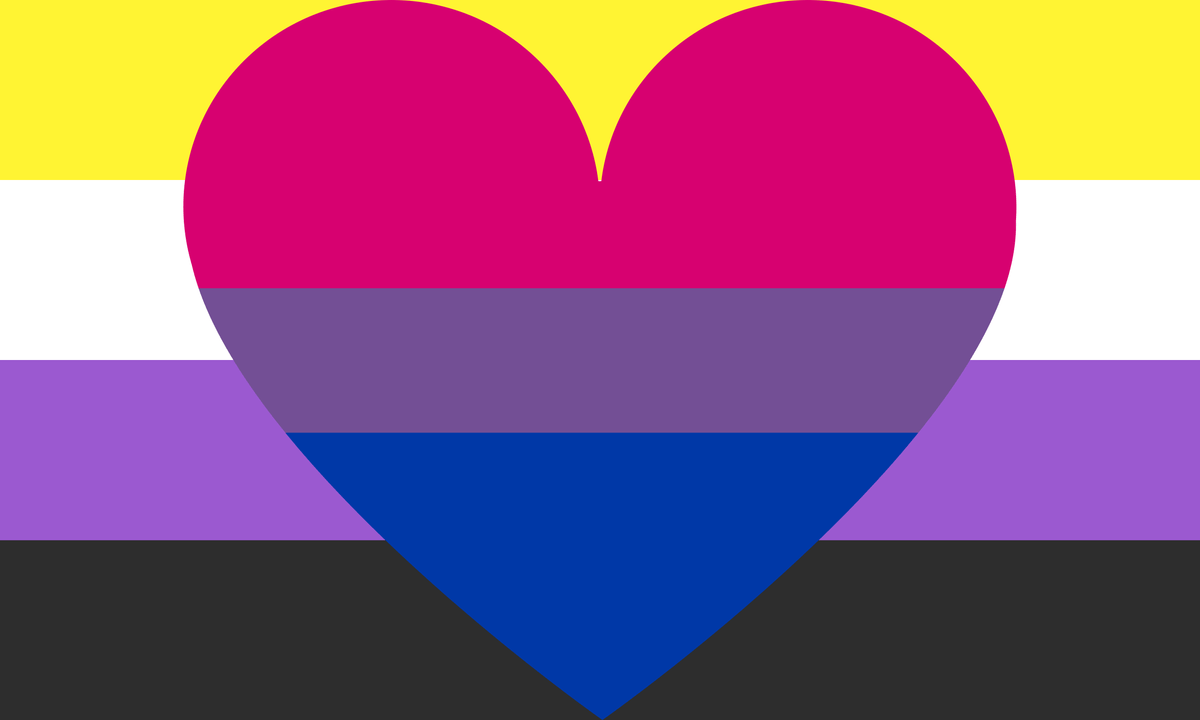[he/him] I’m sorry if this is the wrong place to ask; I wanted to post in an active, trans people-focused community where I’d get answers that were for sure going to lead to a place that align with my values. Feel free to delete this but please explain to me if it’s offensive so I can correct my behavior going forward.
I see myself as an ally but unfortunately I don’t have any trans friends that I can talk to. I’ve worked with and been in therapy with a few before, along with reading quite a bit online in places like here, so I’m not completely oblivious about what’s going on.
One of the main things I feel I’m missing is the full vocabulary I should have in 2023. Example: I saw a post the other day either on this instance or hexbear mentioning “chasers” and had to pour through the thread to find out what that meant. I feel like an important part of advocating for trans rights as a cis person is knowing what’s offensive so if I run into it I can call it out or I don’t do something by accident out of ignorance. In the end I found out it was something I already knew was wrong but didn’t have a name for it.
I’m sorry if this sounds stupid in the end but all of us have to start learning somewhere, right? I guess I’m looking for a place where people would assume you’re asking in good faith but be open to questions coming from ignorance (not intolerance).
There is !asktransgender@lemmy.blahaj.zone. Those of us who watch the local feed will see it.
There’s also not so many posts in most communities that you need separate spaces to ask questions. So any community related to the question should be fine. !LGBTQ_plus@lemmy.blahaj.zone is probably the most general one here.
I don’t think I’ve seen any “ask transgender” style places on fedi, but this this page is a good starting point https://transequality.org/issues/resources/supporting-the-transgender-people-in-your-life-a-guide-to-being-a-good-ally
Thank you!
This is a very good resource for what you’re looking for, I was going to post it but it’s already here!
Here’s a book my therapist showed me. It’s essentially a lgbt+ dictionary
https://www.barnesandnoble.com/w/the-little-book-of-lgbtq-harriet-dyer/1140231087
There are some resources in the community sidebar, but they’re mostly for transfem people. This post is fine btw posts by non transfem people are allowed here, but the main purpose of this space is to provide a supportive welcoming environment for all transfem people. So long as you’re not disrupting that you’re good.
I gotta say I appreciate you taking the time and effort to learn! Allies are very much needed and I’m sure we all appreciate any effort you take.
It can be difficult to navigate the waters of transgender issues because opponents of trans rights will often use a tactic called sealioning which in short is “pretending to ask questions from a place of innocent ignorance” but really their intention is to insert their true hateful opinions into the conversation, or simply to waste the time of everyone involved.
It doesn’t seem like you’re that type of person, but just be aware that sometimes asking questions, no matter how innocent, will sometimes illicit a skeptical, or downright suspicious response because of that.
Anyway, I’ll try to be helpful with a list of commonly used terminology that you can look up.
AMAB/AFAB - Assigned (Male/Female) At Birth refers to the gender that a transgender person was born as
Sex vs Gender - Sex is biological, but gender is societal. People will often say that gender is a construct, by that they mean that the stereotypes and behaviours that we are not born with the stereotypes or behaviours that define genders in our society, they’re learned and they can be changed and unlearned.
Gender binary (or gender spectrum) - This is a term for the 2 common types of gender that most societies have, which is male gender and female gender. Although it uses the term “binary” which implies only 2 options, it’s often thought of more as a spectrum with the 2 extremes being on each end of the spectrum.
Transsexual - An outdated term and considered very offensive by most of the transgender community. NEVER call a transgender person a transsexual unless they use that word to describe themselves. As far as I understand it, a transsexual is specifically a person who doesn’t actually believe that they are a gender other than their assigned gender at birth, but instead they simply wear clothing of the opposite sex either for shock value, or for sexual purposes. Basically a crossdresser, or a drag queen would fit into this category.
Trans/Cis - These are Latin affixes, cis being “on this side” and trans being “on the other side of”, but with reference to gender cisgender people are those who are happy with the assigned gender at birth, and transgender people have chosen to change their assigned gender at birth.
Transwoman - A transgender person that was AMAB but has transitioned into a woman
Transman - A transgender person that was AFAB but has transitioned into a man
Gender neutral - Gender neutral transgender people are a specific subset of non-binary transgender people in that they do believe in the gender binary (male/female and everything in between) and they usually will try to be as close to the middle as possible.
Non-Binary - An AMAB or AFAB transgender person whose transition goals are to be neither distinctly male nor female in their gender presentation.
Transfeminine (or transfemme) - I see this term misused a lot even by transgender people, but I think the true definition is a transgender person who is non-binary, but leans slightly towards the feminine side of the binary gender spectrum.
Transmasculine (or transmasc) - Again, often misused in my opinion, but this is a non-binary transgender person that leans slightly towards the mascule side of the binary gender spectrum.
HRT (Hormone Replacement Therapy) - Medication to suppress the hormones of a transgender person’s assigned gender at birth and replace it with the desired hormones. Sometimes referred to as Gender Affirming Care (GAC).
E/T/Blockers - These are terms for different medications used in HRT. E is short of Estrogen, T is short for Testosterone, and blockers are medications that inhibit natural hormone production, for transwomen this will block the production of testosterone, for transmen this will block the production of estrogen.
GRS (Gender Reassignment Surgery, or sometimes called Bottom Surgery) - Usually this is specifically in reference to a surgical procedure to change the genitals of the transgender person into that of their chosen gender.
Top Surgery - Top surgery is another type of surgery that I think is distinct from GRS because it’s a secondary sexual characteristic. For transmen this is the removal of breasts, for transwomen this is the addition of breasts (breast implants).
Chaser (or Unicorn Chaser) - A term for people that don’t really see transgender people as people, but instead they see us as a rare commodity for their sexual gratification. They don’t truly see transgender people as their chosen gender, because to them the thing that piques their interest about us is simply that we are transgender.
Wow, I’ve hit the character limit, gotta break this up into multiple posts…
Continuing from before…
Pass/Passing - Passing is a term that means that when you’re among strangers, your appearance and behaviours so closely mimic your chosen gender that strangers aren’t aware that you’re transgender unless you choose to share that information.
Clocking/Getting Clocked - This is a term transgender people use to describe a situation where you’ve been publicly outed as a transgender person. It’s basically the opposite of passing.
Misgendering - This is a term for when someone uses the wrong pronouns to refer to a transgender person. Usually transwomen are she/her, transmen are he/him, and non-binary people are they/them. That’s not always the case, but try to respect people’s pronouns.
TW/CW (Trigger Warning/Content Warning) - These are not specifically terms of the transgender community but it’s something you’ll often see in safe spaces. It’s just a warning that the proceeding content might trigger sensitive people. You might see something like “TW/CW transphobia” which warns you that if you’re particularly sensitive to transphobia, you might not want to read ahead.
This post is getting really long so I’m gonna wrap it up. I hope that was helpful!
I just want to end with a concept rather than terminology. The most important thing in being a good ally is don’t draw unwanted attention to transgender people.
A good example of that is the issue with pronouns. If transgender people are the only ones that introduce themselves by saying their name and their pronouns, then they’re essentially clocking themselves by introducing themselves that way, but if they don’t then they’re risking people misgendering them.
It’s also not great for you to ask for a person’s pronouns because if you ask a transgender person that question, they could easily interpret the question as implying that you’ve clocked them. Instead, it’s best if allies insist on introducing themselves by using name and pronouns even if they’re cisgender.
It’s like with the word “partner”. It used to be that if you said “my partner” it basically meant you were gay. So gay people would be forced to out themselves by saying (husband/wife/boyfriend/girlfriend/etc) or trying to be ambiguous and saying “partner”. Allies have taken it upon themselves to start using the term “partner” even in cis-straight relationships to help give gay people the option on whether they want to out themselves or not when referring to their partner.
Basically, just try to be kind, try not to clock us, and listen and learn when corrected by a transgender person. And you might have noticed that I try to say “transgender person” as much as possible. That’s a good habit to get into because it humanizes us and reinforces in your head that we are people and deserve the same rights and respect as everyone else. Thanks for reading! 🏳️⚧️🏳️🌈






